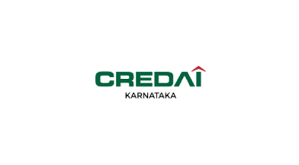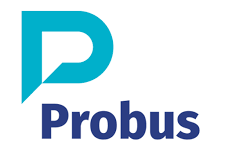- PR industry achieves ₹2,500 crores in FY 23 with 19% YoY growth; projected to reach ₹4,570 crores by FY30, expecting sustained double-digit growth
- Industry to employ 22,700 professionals by FY 30, adding 8,400 jobs while focusing on upskilling and retention strategies
- 90% of corporate communicators see the value shifting to business impact over media exposures, leading to PR budgets growing to 15.7 percent of marketing spends
- Key trends gaining momentum include AI, Purpose Driven PR, Regional PR and influencer marketing
- With attrition at 16 percent, talent remains key industry challenge, Gen Z struggles with work culture and concerned about workload, motivation and micromanagement
New Delhi, January 23, 2025: The Public Relations Consultants Association of India (PRCAI) unveiled its SPRINT 2024-25 survey report, presenting the dynamic state of India’s rapidly evolving public relations industry. The industry achieved ₹2,500 crores in revenue for FY 2023, reflecting a 19% year-on-year growth—far outpacing global growth by more than three times. With a compounded decadal CAGR of 12.8%, the industry is expected to reach ₹4,570 crores by FY 2030, driven by an increasing emphasis on strategic PR practices for business outcomes, technological advancements, influencer marketing, and purpose-driven strategies gaining prominence.
The survey is conducted by Ipsos, a global market research and advisory company and PRCAI in collaboration with Astrum Reputation Advisory for narrative and storytelling, capturing insights from 220 respondents, covering senior decision-makers from consultancies and corporate communication teams, and expanded range of industry professionals.
The industry employed 13,300 professionals in FY 2023, added 4,800 people in the last 5 years. Till FY 2030, the Indian PR industry is expected to see the headcount grow at a CAGR of 8%, and is projected to employ 22,700 professionals by FY 2030.
“The findings from SPRINT 2024-25 serves as both a mirror and a map—reflecting the current growth state of India and the Industry. In FY22, industry saw a 15% growth, followed by a 19% in FY23 primarily due to a smaller market base post Covid-19. For FY 2024 the industry is projecting 11% growth considering the larger market base. The growth is fueled by the industry’s adaptability—whether it’s the rise of AI-driven tools or the expansion of regional outreach and diverse set of services, which is contributing to projected growth,” said Atul Sharma, President, PRCAI.
However, the report also highlights that while the industry has witnessed a compounded decadal CAGR of 12.8%, the industry, the growth is likely to soften as PR firms are experiencing growth pangs and dealing with intense cost pressures in talent and infrastructure, and client budgets are not growing at the same pace at which consultancies are incurring costs.
“SPRINT 2024-25 showcases how the PR industry is rapidly evolving in an era where PR can influence reputation, and business outcomes and growth. From AI integrations to regional storytelling and digital-first approaches, the profession is consolidating best practices from global and local nuances. As the industry embraces AI and big data, it faces the challenge of navigating AI-generated misinformation, highlighting the need for strategic differentiation for us to foster creativity, adopt the right technology, and continue to build industry ready talent. As PR professionals, this is our time when we are uniquely positioned to build trust and inspire action,” said Deeptie Sethi, CEO, PRCAI.
Key Findings from SPRINT 2024-25:
PR to Impact Business Outcomes
As corporate communicators now collaborate directly with the C-suite, it’s evident that PR is no longer an ancillary function but a strategic partner in achieving business goals. The survey reveals, that while private corporates (46%) remain the big contributor, start-ups (22%) and NGOs (11%) have emerged as high-growth segments. 68% of PR consultancy heads agree that acquisitions and collaborations are key drivers of industry growth, fuelled by global expansion, service diversification, competitive advantage, and talent acquisition. The Indian PR is transitioning from traditional media metrics to a tangible business impact. According to the survey, 90% of Corporate Communicators are seeing the value shifting to business impact over media exposures, and an equal number see a need for a comprehensive multi-channel (paid, earned, owned) strategy to deliver ROI. Overall, 69 percent respondents agree that digital-first approach necessary for all PR campaigns and PR budgets rose from 9.5% three years ago and likely to grow to 15.7% over next three years of the marketing spends.
AI a Catalyst and Threat for PR
Artificial intelligence (AI) is an important stimulus of PR innovation, with 90% of leaders recognizing its role in driving growth, up from 44% in FY 2022. The top three key areas where big data and AI will influence include research and strategy (82%), conversational AI (77%), and personalized content creation (57%), apart from media monitoring and automating routine tasks. Despite these advancements, there is an investment deficit, with only 13% of PR firms having made significant investments in AI, while 47% have made moderate investments and 30 percent have not invested in any enterprise tools. However, AI has headwinds – risks such as misinformation and deepfakes, pose several challenges, highlighted by 90% of respondents. Maintaining strategic differentiation will be a double whammy as AI democratizes access to similar information and data.
Purpose-Driven PR Gains Momentum
While there is a growing emphasis on Purpose-driven communication, it is important to distinguish PR from greenwashing. More than half of respondents confirmed that clients are increasingly adopting purpose-driven PR, with top 3 sectors adopting it are Social Impact and NGO (80%), Energy and Environment (67%), and Pharma and Healthcare (60%). Organizations are increasingly aligning narratives with societal values such as sustainability and diversity. However, the study warns against “greenwashing” emphasizes on maintaining authenticity, as 45 percent respondents agreed that narratives of ESG (Environmental, Social, Governance) and DEI (Diversity, Equity, Inclusion) are often challenged by investors.
Influencer Marketing on Rise, Hyperlocal Engagement Boost with Regional
The role of influencer marketing is emerging as a key growth driver. In the report, a proportion of respondents indicated that influencer marketing contribution to their service-wise revenue has increased from 10% in last three years to 18% in FY24 and is expected to rise to 28% in the next three years. Further, 73 percent believe the need to explore storytelling from a fresh perspective by going hyperlocal, and an overwhelming 88 percent agree that cultural nuances are essential for building tailored PR strategies. The survey saw 84 percent agreeing that regional storytelling will gain importance, and 86 percent agreeing that regional influencers and local dialects will gain tremendous traction. While influencer engagement is grabbing attention, 88 percent felt that Influencer marketing needs more accountability for business outcomes and 53 percent preferred Key Opinion Leaders over Influencers.
Talent Development as a Strategic Imperative
Although the PR industry added 1,300 professionals in FY23, the attrition rate in FY 2023 is 16% driven by concerns around compensation, work-life balance, and workplace culture. The top 5 reasons for attrition quoted by PR firm employees are Growth opportunities (72%), Work-life balance (64%), Compensation and benefits (61%), Poor work culture (54%), Dissatisfaction with leadership (53%). The survey highlighted that tier II and III cities are becoming vital talent pools, who offer greater adaptability and loyalty. While organizations are increasingly adopting flexible work models to attract and retain this workforce, half of respondents felt that by 2025, the PR industry should return to a full-time, in-office work mode.
To attract and retain talent, continuous upskilling and training on the job is critical, as agreed by 82% of respondents, with 75 percent agreeing that domain knowledge is essential to be a good PR professional and 76% emphasize the need for curriculum overhauls in educational institutions to align with industry demands.
Gen Z Shaping Future PR Workplaces
For the first-time ever, the survey went deeper to study behavioral changes with the rise of Gen Z professionals strongly influencing workplace dynamics in PR industry. Gen Z are ambitious, collaborative and curious, who seek flexibility, reward and recognition, encouraging PR firms to adopt inclusive policies and mentorship programs.
But, the next-gen struggles with set work culture with 45 percent concerned with overwhelming workload and an equal number had lack of motivation, and 41 percent were concerned with micromanagement and 34 percent stressed over work-life balance. To get the best from Gen Z, recognizing and rewarding talent will boost their morale and retention (93%), and expect more tolerance, flexibility, liberalism when managing them (86%), and expressed that leadership style to adapt their management styles to foster inclusivity and a peer-level working relationship (79%). Over 70% of Gen Z respondents highlighted the importance of aligning their work with personal values, such as diversity, sustainability, and innovation. With the workforce projected to grow to 22,700 professionals by FY 2030, addressing Gen Z’s expectations will be essential to sustaining this growth.
“The PR industry in India is undergoing a consolidation phase, characterized by a remarkable growth rate of 1.4x of GDP, in 2024. This surge is driven by the increasing influence of digital media, influencer marketing, and social media. As the industry embraces AI and big data, it faces the challenge of navigating AI-generated misinformation, highlighting the need for strategic differentiation,” concluded, Deepak Hanumantharayappa, Partner & Country Lead, Ipsos Strategy 3.
 Newspatrolling.com News cum Content Syndication Portal Online
Newspatrolling.com News cum Content Syndication Portal Online







